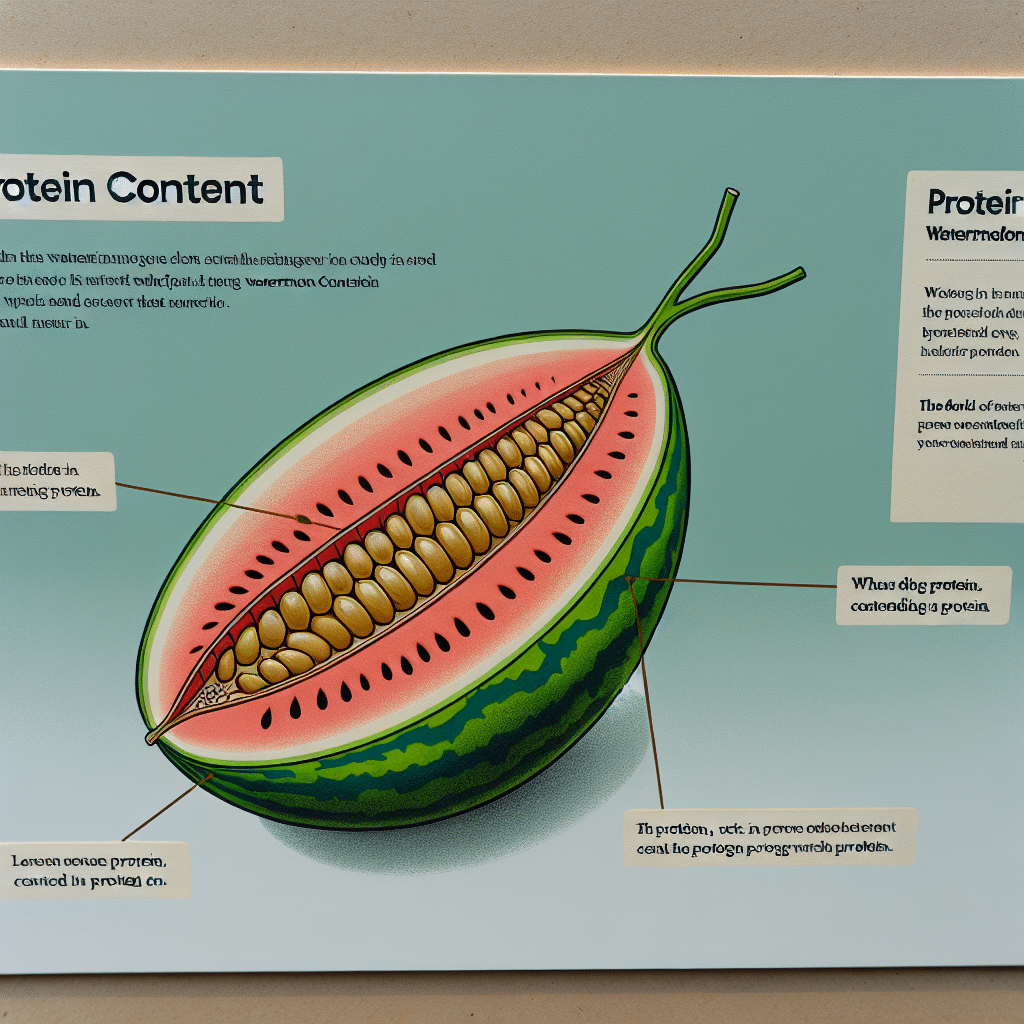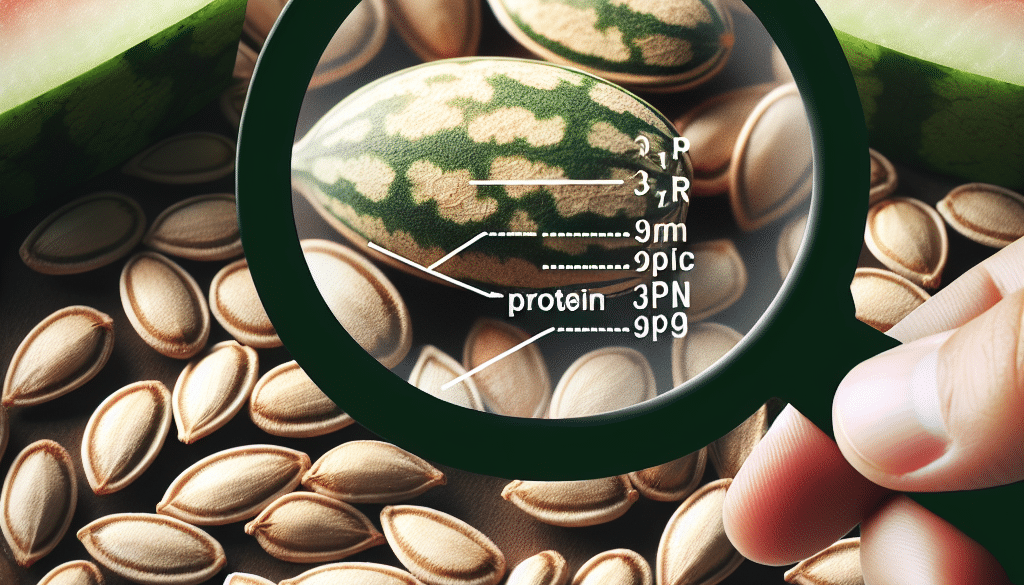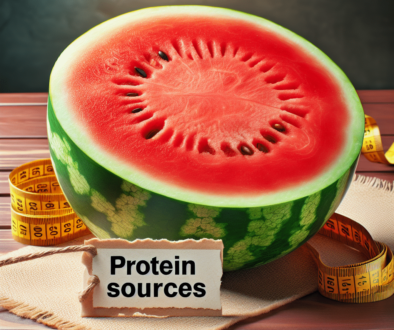Do Watermelon Seeds Have Protein?
-
Table of Contents
- Watermelon Seeds: A Surprising Source of Protein
- Understanding the Nutritional Profile of Watermelon Seeds
- Protein in Watermelon Seeds: The Facts
- Health Benefits of Watermelon Seed Protein
- How to Consume Watermelon Seeds for Protein
- Comparing Watermelon Seed Protein to Other Sources
- Incorporating Watermelon Seed Protein into Your Diet
- Conclusion: The Protein Power of Watermelon Seeds
- Discover ETprotein’s Watermelon Seed Protein Products
Watermelon Seeds: A Surprising Source of Protein

When we think of watermelon, we often envision a refreshing, juicy fruit perfect for hot summer days. Rarely do we consider the nutritional value of its seeds, which are commonly discarded or spit out. However, watermelon seeds are more than just a nuisance; they are a powerhouse of nutrients, including protein. In this article, we will delve into the protein content of watermelon seeds and explore their potential benefits and uses.
Understanding the Nutritional Profile of Watermelon Seeds
Watermelon seeds are often overlooked as a snack or dietary supplement, but they have a rich nutritional profile. They contain essential amino acids, vitamins, minerals, and, notably, a significant amount of protein. To understand the value of these seeds, it’s important to look at their nutritional composition in detail.
- Protein Content: Watermelon seeds are a good source of plant-based protein. They contain a substantial amount of this macronutrient, which is vital for muscle repair, enzyme function, and overall health.
- Vitamins and Minerals: These seeds are also rich in B vitamins, magnesium, phosphorus, iron, potassium, sodium, copper, manganese, and zinc, contributing to various bodily functions.
- Fats: Watermelon seeds contain healthy fats, including unsaturated fatty acids that are beneficial for heart health.
- Fiber: The seeds are a good source of dietary fiber, which aids in digestion and promotes a feeling of fullness.
Protein in Watermelon Seeds: The Facts
When it comes to protein, watermelon seeds are surprisingly potent. A 30-gram serving of dried watermelon seeds can provide approximately 10 grams of protein, which is about 20% of the daily recommended intake for the average adult. This makes them a comparable source of protein to other popular seeds and nuts.
Health Benefits of Watermelon Seed Protein
Incorporating watermelon seed protein into your diet can offer several health benefits:
- Muscle Growth and Repair: The protein in watermelon seeds can help in the growth and repair of muscle tissue, making them a great addition to a post-workout snack.
- Weight Management: High-protein foods can increase satiety and reduce overall calorie intake, aiding in weight management.
- Metabolic Health: Protein-rich diets have been linked to improved metabolic markers and can help in the management of conditions such as diabetes.
- Heart Health: The unsaturated fats in watermelon seeds, along with their protein content, can contribute to a healthier cardiovascular system.
How to Consume Watermelon Seeds for Protein
Watermelon seeds can be consumed in various forms to take advantage of their protein content:
- Raw or Sprouted: You can eat watermelon seeds raw or sprout them to increase their nutrient availability.
- Roasted: Roasting watermelon seeds enhances their flavor and makes them a crunchy, protein-rich snack.
- Ground into Flour: Ground watermelon seeds can be used as a gluten-free flour alternative in baking and cooking.
- Watermelon Seed Butter: Similar to other seed and nut butters, watermelon seed butter can be a delicious way to incorporate these seeds into your diet.
Comparing Watermelon Seed Protein to Other Sources
When compared to other plant-based protein sources, watermelon seeds hold their own. For example, they have a higher protein content than some grains and legumes when compared on a per-gram basis. Additionally, they are a complete protein source, containing all nine essential amino acids, which is not the case for many plant proteins.
Incorporating Watermelon Seed Protein into Your Diet
Adding watermelon seed protein to your diet is simple and can be quite enjoyable. Here are some creative ways to include them:
- Add roasted watermelon seeds to salads or yogurt for a protein boost.
- Use watermelon seed flour in your baking recipes for added protein and nutrients.
- Blend watermelon seed butter into smoothies or spread it on toast.
- Snack on watermelon seeds as a protein-rich alternative to chips or popcorn.
Conclusion: The Protein Power of Watermelon Seeds
In conclusion, watermelon seeds are an excellent source of plant-based protein and offer a variety of health benefits. They are versatile, nutritious, and can easily be incorporated into a balanced diet. Whether you’re looking for a post-workout snack, a weight management aid, or simply a new way to enjoy protein, watermelon seeds are worth considering.
Discover ETprotein’s Watermelon Seed Protein Products
If you’re interested in exploring the benefits of watermelon seed protein, ETprotein offers a range of high-quality protein products derived from watermelon seeds. Their watermelon seed protein is characterized by a neutral taste, non-GMO, and allergen-free attributes, making it an excellent choice for those seeking a natural and effective protein source.
ETprotein’s commitment to quality ensures that you receive a product that is not only nutritious but also meets the highest standards of purity and efficacy. Whether you’re formulating new health products or looking to enhance your diet, ETprotein’s watermelon seed protein is an ingredient you can trust.
About ETprotein:
ETprotein, a reputable protein and L-(+)-Ergothioneine (EGT) Chinese factory manufacturer and supplier, is renowned for producing, stocking, exporting, and delivering the highest quality organic bulk vegan proteins and L-(+)-Ergothioneine. They include Organic rice protein, clear rice protein, pea protein, clear pea protein, watermelon seed protein, pumpkin seed protein, sunflower seed protein, mung bean protein, peanut protein, and L-(+)-Ergothioneine EGT Pharmaceutical grade, L-(+)-Ergothioneine EGT food grade, L-(+)-Ergothioneine EGT cosmetic grade, L-(+)-Ergothioneine EGT reference grade and L-(+)-Ergothioneine EGT standard. Their offerings, characterized by a neutral taste, non-GMO, allergen-free attributes, with L-(+)-Ergothioneine purity over 98%, 99%, cater to a diverse range of industries. They serve nutraceutical, pharmaceutical, cosmeceutical, veterinary, as well as food and beverage finished product distributors, traders, and manufacturers across Europe, USA, Canada, Australia, Thailand, Japan, Korea, Brazil, and Chile, among others.
ETprotein specialization includes exporting and delivering tailor-made protein powder and finished nutritional supplements. Their extensive product range covers sectors like Food and Beverage, Sports Nutrition, Weight Management, Dietary Supplements, Health and Wellness Products, and Infant Formula, ensuring comprehensive solutions to meet all your protein needs.
As a trusted company by leading global food and beverage brands and Fortune 500 companies, ETprotein reinforces China’s reputation in the global arena. For more information or to sample their products, please contact them and email sales(at)ETprotein.com today.














